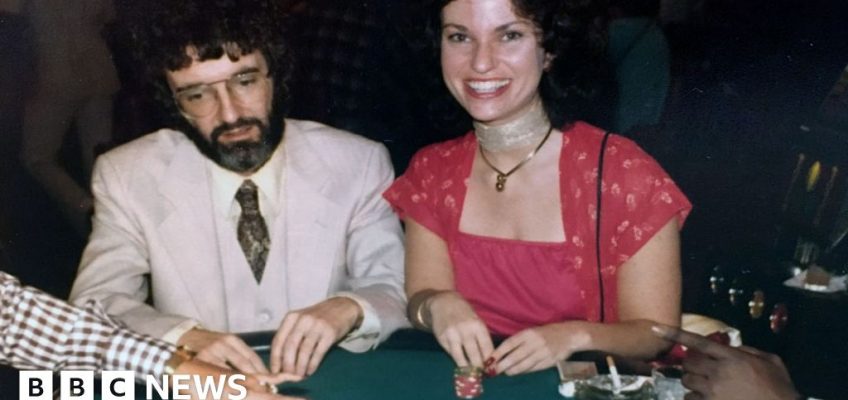In the 20 years since a teen carried out the deadliest school shooting in Minnesota at Red Lake High School, authorities have learned more about warning signs before violence.
The Minnesota Bureau of Criminal Apprehension started the Behavioral Threat Assessment and Management Team in 2023 and just rolled out a statewide strategy.
The work moves beyond a law enforcement-only approach to a multi-disciplinary team that includes mental health professionals, educators and community leaders.
“Far too often we hear about mass violence occurring in one of our communities, both in Minnesota and across the country, and yet we know there’s a fairly regular pattern that exists with people that commit mass violence,” said BCA Superintendent Drew Evans, referring to people who are around perpetrators and, in hindsight, realized there were warning signs.
The state’s team is working to prevent violence “from occurring in the first place,” focusing on threats to schools, houses of worship and other places where large numbers of people are gathered, Evans said.
Not if they made a threat, but if they pose one
The work of threat assessments began on the federal level after attempted assassinations of public figures, including then-President Ronald Regan in 1981, to develop “a profile for the type of person that would perpetrate that kind of violence,” with the view of prevention, said James Densley, co-founder of the St. Paul-based Violence Prevention Project and an expert in mass shootings.
Behavioral threat assessment became an “evidence-based approach” that’s been applied to school shootings and workplace violence “as a way of trying to get upstream of the problem and intervene before it ever occurs,” said Densley, who chairs Metropolitan State University’s criminology and criminal justice department.
Minnesota is the eighth state to roll out a statewide strategy for preventing targeted violence. The work is coordinated at the BCA’s office in St. Paul. They assist local entities and also have a tip line that’s open to the public. The state team began in October 2023 after receiving a federal grant.
The information they receive is often about people causing safety concerns to those around them — and it’s a change to their typical behavior.
“It’s not if they made a threat, it’s if they pose a threat,” said Emmah Pieper, BCA criminal intelligence analyst.
Examples may include someone who is suddenly making agitated posts on social media or who shows an interest in something they didn’t before — such as firearms, said Stefanie Dressen, BCA assistant special agent of change of the Behavioral Threat Assessment and Management Team. The change in behavior also includes talking about violence or other concerning behavior.
Related Articles
Fire at Fargo Tesla charging station believed to be intentionally set
St. Paul kidnapping case followed by federal drug trafficking charges
Roseville police arrest 29 in retail theft blitz
‘Her name is Darisha,’ sister of teen intentionally struck in Forest Lake says at killer’s sentencing
4 sentenced to prison in Colombia for murder of Twin Cities comedian
Untreated mental illness or substance abuse problems could be driving the change, or it could be a grievance with someone or something they don’t know how to resolve, Dressen said. A person could be motivated by politics or ideology, but that’s not always the case. Other examples are people who are embarrassed by a divorce, fired from their job or being bullied at school.
A major part of the behavioral threat assessment is determining whether a person has the means to carry out violence, including access to guns or other weapons.
“Everyone’s affected by every targeted violence act, no matter where it happens in the country or in the world, because it makes us look over our shoulders,” Dressen said. “It’s not just a law enforcement problem, it’s not just a school problem, it’s a community problem.”
Response could be law enforcement or social services
Members of the Minnesota Department of Public Safety’s Bureau of Criminal Apprehension Behavioral Threat Assessment and Management team, are from left, Emmah Pieper, a criminal intelligence analyst, Katie Gernentz, special agent, Stefanie Dressen, assistant special agent in charge of operations, and Bruno Dias, associate director for Homeland Security’s central region, at BCA headquarters in St. Paul on March 19, 2025. The BCA started the Behavioral Threat Assessment and Management Team in 2023, a multi-disciplinary team that includes mental health professionals, educators and community leaders to stop episodes of targeted violence.(John Autey / Pioneer Press)
The people who come to the attention of a Behavioral Threat Assessment and Management Team may not have committed a crime or their actions may constitute a threat of violence under state law. But if they’re arrested and released, that doesn’t take away violent plans they may be making, Dressen said. That’s why the team’s work is also about getting people connected to social services and mental health resources.
For instance, a 32-year-old man was arrested in St. Cloud in 2021 for stalking and possibly planning an attack against police. A Behavioral Threat Assessment and Management Team — not the BCA’s because it was before it was started — assessed the man and determined that civil commitment and addressing his untreated mental health condition “would best serve him and public safety,” the BCA’s strategy document says as an example. “Since then, the man has been successfully living in the community and is gainfully employed.”
Densley said he agrees that not all threats should mean a criminal response, especially for juveniles. If people are making threats — rather than keeping them to themselves — those should be viewed as a chance to step in and get them help, Densley said.
But if a person’s actions involve a criminal violation, a Behavioral Threat Assessment and Management Team will take a law enforcement and prosecution approach.
In 2023, a 20-year-old from a Twin Cities suburb received a prison term for a 2021 burglary, during which he tried to steal guns. An initial assessment from a Behavioral Threat Assessment and Management Team “identified an intent to carry out mass violence,” the BCA’s report said. “This approach ensured that the criminal justice system acted appropriately and in a coordinated fashion.”
Red Lake, 20 years later
A unidentified FBI agent, far left, coordinates an investigation after a shooting spree at Red Lake High School, Monday, March 21, 2005, in Red Lake, Minn. A high school student went on a shooting rampage Monday, killing his grandparents at their home and then five people at his school on an Indian reservation. The gunman himself was later found shot to death, authorities said. (Monte Draper / The Bemidji Pioneer/AP)
On March 21, 2005, the Red Lake community was devastated by shootings carried out by a Red Lake High School student — he killed five of his classmates, a teacher and the school’s security guard, along with his grandfather and his grandfather’s partner, before dying by suicide. Red Lake is 260 miles north of downtown St. Paul.
“What we endured as a community was tragic and devastating for so many wonderful individuals, families and the Red Lake community as a whole,” said Missy Dodds, a Red Lake High School teacher who is now an outreach specialist and speaker for Safe and Sound Schools. “I want people to know that those we lost will never be forgotten — Neva, Chase, Thurlene, Dewayne, Alicia, Chanelle and Derrick. They will always have a place in our hearts.”
Missy Dodds (Courtesy of Safe and Sound Schools)
Through the work of the 3.21.05 Memorial Fund, plans are being made for a permanent memorial in Red Lake. “I am grateful that the lives lost and changed will forever be honored and remembered,” Dodds said.
In their research, Densley and Hamline University criminology and criminal justice professor Jillian Peterson, the founders of the Violence Prevention Project, studied the warning signs showed by the Red Lake shooter.
“This was a student that had trouble at home, who was pretty immersed in Nazi, far-right propaganda, was posting things on social media, was writing about things in diaries and school projects,” Densley said. “He had access to guns because his grandfather was a police officer.”
But the problem before Red Lake and other mass shootings is the red flags that are “pieces of a puzzle” and, while various people may know about pieces, it takes coordination — like a Behavioral Threat Assessment and Management Team — to put the puzzle together before violence happens, Densley said.
Dodds said she believes “in the threat assessment process and the evidence-based approach it provides to identify potential warning signs and opportunities for intervention on the pathway to violence.” She sees it as “one part of a comprehensive approach to school safety,” which is something Safe and Sound Schools often talks about.
‘It takes everybody being involved’
The BCA knows of 20 Behavioral Threat Assessment and Management Teams in Minnesota — some counties have them, along with school districts and corporations — and is aiming to work in coordination with them.
The goal of having a strategic plan, which the BCA and Gov. Tim Walz publicized Thursday, is to make people around the state aware that they’re a resource and they have training available, Dressen said.
Related Articles
Delta plane from MSP that flipped in Toronto showed high rate of descent, initial report says
U.S. 52 in Rosemount partially reopen after Pine Bend Refinery propane pipeline leak
Burnsville man killed in weekend crash on Interstate 35E is identified
Minnesota law enforcement tries roadside drug screening, like portable breath tests, on suspected impaired drivers
Another raw pet food recall is tied to illness and death in cats
Their message to the public is: “It takes everybody being involved,” said BCA Special Agent Katie Gernentz, who works on the Behavioral Threat Assessment and Management Team.
“There is no bad tip, even if you only have minimal information,” Dressen added.
“If it makes the hair on the back of your neck stand up, if it makes you worried or scared,” that’s a sign to come forward, Pieper said.
People can make tips, including anonymously, about concerning or suspicious behavior by calling the BCA Tip line at 877-996-6222, emailing bca.tips@state.mn.us or downloading the BCA tip app called “See it, Say it, Send it.”




